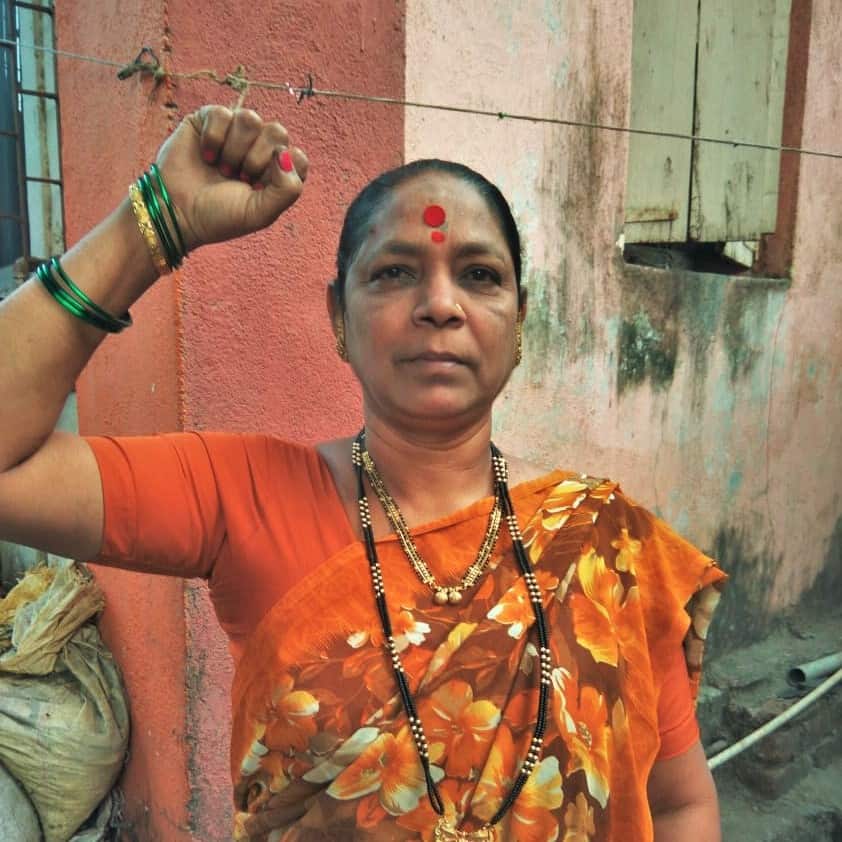This article was published more than 4 years ago.
A woman stands before a crowd of demonstrators in Maharashtra State, India. Her village is one of 53 about to lose its ability to function autonomously.
She speaks passionately about why they all deserve to have a voice in decisions about their hometowns’ future. She notes how important it is for women to speak out. The crowd cheers, but their peaceful demonstration turns violent as the police close in.

Her name is Sunita, a head of her village and one of the leaders of Shramjeevi Sanghatana, a membership-based organization and partner of the Fund-supported advocacy group Samarthan. After the senseless beating Sunita endured at this 2010 protest, she underwent major surgery. Undeterred, more than a decade later, she is still fighting for her community’s rights with the support of Samarthan and the Fund.
Sunita comes from an Adivasi tribal community, one of India’s most marginalized populations. She was the twelfth child in her family, who lived in extreme poverty. Sunita was forced to quit school after class two (equivalent to second grade in the United States or year three in the UK) to work—first at brick kilns and then as a cattle herder. Eventually, like her parents, she became a member of the Shramjeevi Sanghatana organization.
While she remembers attending protests calling for minimum wages for day laborers as a young girl, Sunita never pictured herself leading a march. She had terrible stage fright. But, one day, the organization leader asked her to come up and speak. It lit a spark in her. By this time, Sunita was a young married woman. The moment inspired her to learn to read and write. She became more involved with the organization, which gave her additional training around protecting her rights and being an advocate. She began speaking on more stages and organizing other women.
I was deprived, I was oppressed, but Sanghatana gave me this strength
Today, Sunita is the vice president of the organization’s women’s section, mahila thinagi (or women spark), and a three-time elected head of her local village council. And she has inspired the next generation of activists: her grandchildren are active members of the youth wing.
“I was deprived, I was oppressed, but Sanghatana gave me this strength to stand in front of every power,” Sunita proudly states. “Now, this is my job to impart this strength amongst the oppressed and vulnerable and make them strong and courageous.”
Sunita’s organization is a close partner of Fund-backed Samarthan, an organization that works to elevate the issue and concerns of grassroot groups and marginalized communities with policy makers in Maharashtra. With the Fund’s support, Samarthan has been able to grow sustainably and take smart risks and form new collaborations with government officials, lawyers, and even journalists to amplify local voices.
In April 2020, during the COVID lockdown, Samarthan and their sister organizations held protests that helped secure support for 1.8 million tribal families in Maharashtra State.
Their strength comes from numbers, as well as leaders like Sunita. Together, they help form a mass movement of millions of day laborers, migrants, and other workers with few protections who are ready to use their voices to speak out for much-needed change.
There are millions of women like Sunita around the world, who are ready to stand up for their rights. The Fund is dedicated to supporting their pursuit of equality, justice, and a better life for their communities. But we can’t do it alone. Learn how you can get involved today.


